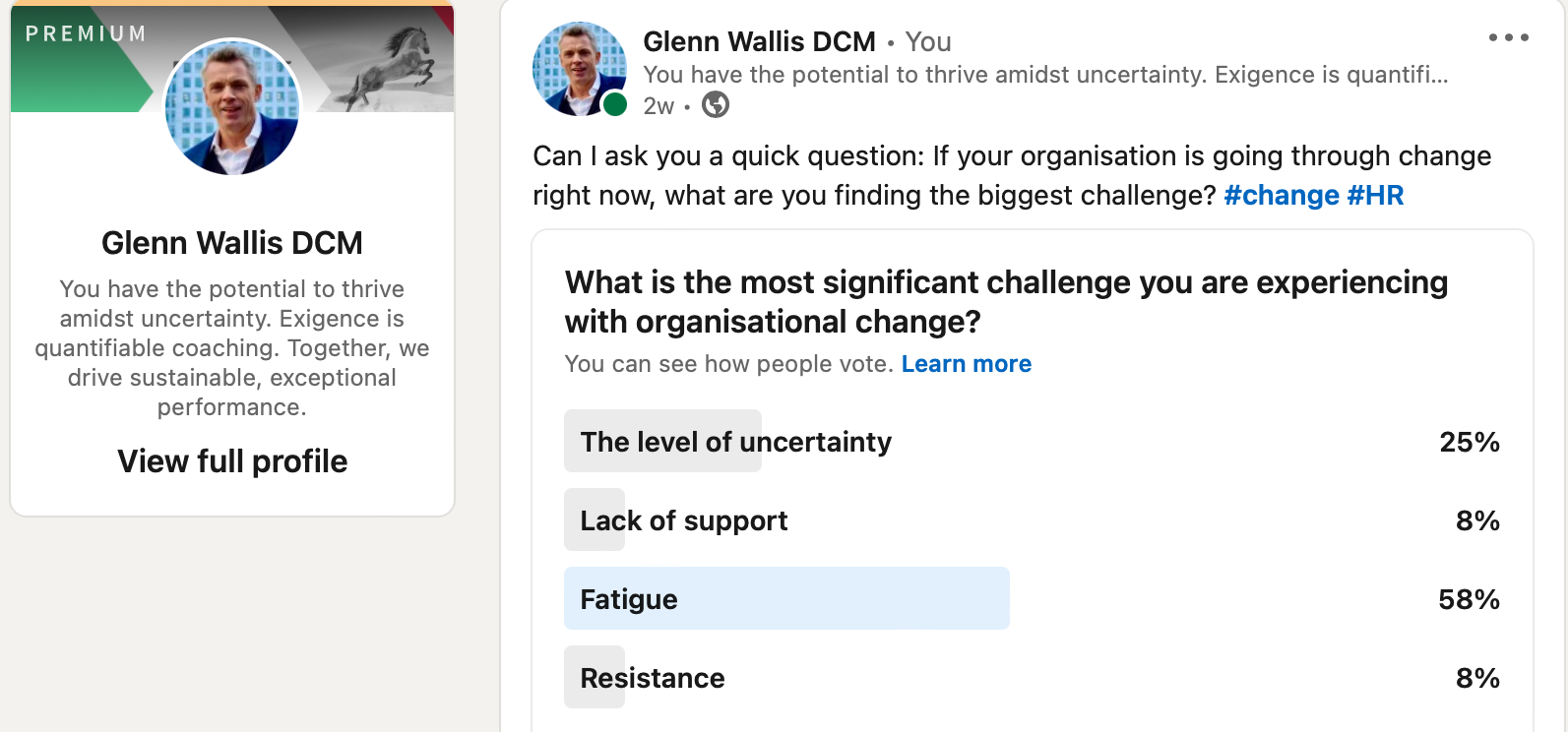Ok, so it may not be a result that would be sufficiently rigorous to publish in an academic article.
And the sample size was pretty small.
And skewed.
And LinkedIn’s Poll response time is pretty short.
But those things aside, the respondents were all from a relevant demographic – namely people like you: leaders of HR and transformation. So, from that perspective how they responded is insightful, just not generalisable to every organisation and unanimously applicable to each change effort.
How could we interpret what it is that these results seem to suggest about leading change?
That people are tired.
That people are tired of change.
That change takes energy – lots of it.
That uncertainty is a key challenge in delivering effective organisational change.
That resistance (at least of the respondents) to change is low.
That, in the main, the respondents feel supported through change. (See below.)
But what might these results also tell us if we were to extrapolate from them?
That high levels of uncertainty correlates with high levels of fatigue, when it comes to change.
That people are not being supported as well as they might be through change – otherwise fatigue would surely not be such a significant factor.
That people people may, in fact, be resistant to change they just don’t want to say so publicly.
That organisations are not thinking through their transformations from a person-centred design perspective (It is humans, after all, who will execute the change for you!)
What lessons might you learn from this incomplete data?
Strictly nothing. You can’t take these results and infer very much for your organisation and your change effort.
But, as you head into the new year, and with all the transformation, change and growth to manage, it might be worth considering at least three things:
- Change takes a lot of energy from people, compounded when there are high levels of uncertainty. So, communicate clearly and way more often than you think is necessary because not only are your messaging from internal comms not heeded, they are diluted or contradicted occasionally when your change leaders are not fully onboard with your plans.
- Focus on supporting the middle of the organisation because it is through them that you reach everyone else. Having middle leaders clear and supported in how they can execute the change plan is an investment in resources that will be returned many times over.
- Whilst senior leaders (as was the case with most of our respondents) are not resistant to change, assume that other parts of the organisation will be and find ways to engage with them early and often. Ensure their concerns are listened to and, counter-intuitively perhaps, give them a seat on the change council.
Exigence works with organisations to deliver full-stack HR leadership development solutions, from Executive and senior team coaching to Concise Coaching and Team Coaching. If you would like to discuss how we can help you deliver quantifiable impacts for your organisation, we’d love to hear from you – just contact us here.





